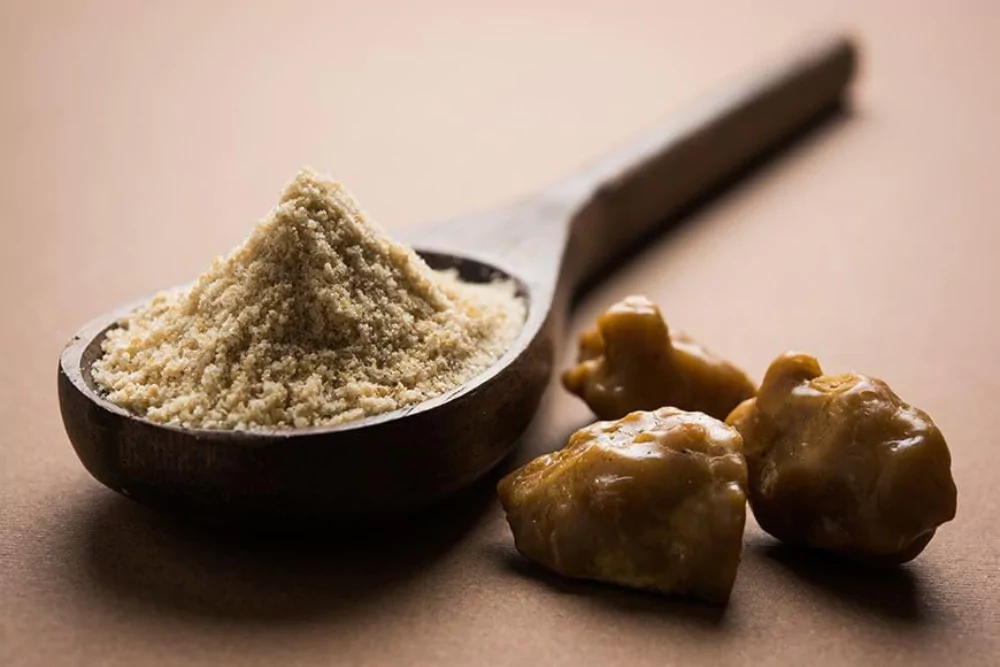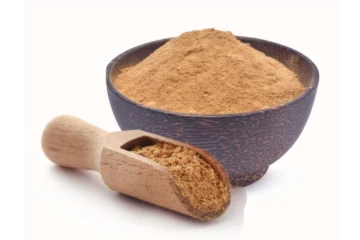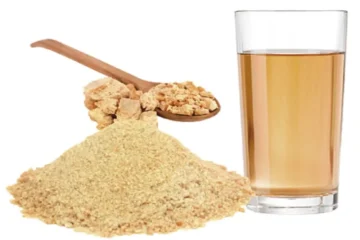Gut health is crucial for overall well-being, and choosing the right form of asafoetida—hing oil or hing powder—can make a big difference. In this blog, we answer all key questions to help you decide the better option for digestion, gas, IBS, and daily use.
What’s the difference between hing oil and hing powder in terms of digestive benefits?
Short Answer: Hing oil offers faster absorption and stronger anti-inflammatory action, while hing powder is more versatile and traditional for digestive relief.
Detailed Answer:
- Absorption: Hing oil is absorbed quickly through the skin or gut lining, offering faster relief for gas and bloating.
- Concentration: Hing oil is more concentrated and typically more potent in smaller quantities.
- Usage method: Hing powder is usually ingested through food, allowing slow but sustained benefits for the digestive tract.
- Traditional use: Hing powder has long been used in Ayurvedic cooking and medicine for treating indigestion, flatulence, and cramps.
- Stability: Hing powder is more stable for cooking, while hing oil may lose potency at high temperatures.
Is hing oil more potent or faster-acting than hing powder for relieving gas and bloating?
Short Answer: Yes, hing oil is more potent and provides quicker relief from gas and bloating compared to hing powder.
Detailed Answer:
- Speed of action: When applied topically or consumed with warm water, hing oil can relieve bloating in as little as 15–20 minutes.
- Bioavailability: The essential oil components penetrate faster into tissues, accelerating the anti-spasmodic and carminative effects.
- Concentrated form: Due to its essential oil format, a few drops of hing oil have a stronger effect than a pinch of powder.
- Ease of use: For those who dislike the taste or smell of hing powder, oil is easier to use directly or mixed in water.
- Acute relief: Ideal for acute digestive episodes like heavy meals or gas-related cramps.
Are there any side effects or precautions when using hing oil compared to powder?
Short Answer: Yes, hing oil can cause irritation or allergic reactions in some users and must be used in smaller doses compared to hing powder.
Detailed Answer:
- Skin sensitivity: Direct application of undiluted hing oil may cause skin irritation in sensitive individuals.
- Allergic reactions: People allergic to asafoetida should avoid both forms, but hing oil may trigger a faster response.
- Internal use: Only food-grade hing oil should be ingested; essential oil versions not marked for internal use can be harmful.
- Dosage: Hing oil should be used in moderation—typically 1–2 drops per dose—while powder can be used in larger culinary amounts.
- Pregnancy and children: Both forms should be used cautiously during pregnancy or with infants; always consult a healthcare provider.
Which form is better for people with sensitive stomachs or IBS symptoms?
Short Answer: Hing oil is usually gentler and more effective for people with IBS or sensitive digestion when used correctly.
Detailed Answer:
- Lower dosage: Hing oil requires a very small quantity to show results, reducing the chance of irritation in IBS patients.
- Quick relief: Ideal for calming sudden IBS spasms or discomfort, especially when used externally on the abdomen.
- Customizable use: Hing oil can be diluted with carrier oils and used topically, reducing internal load on sensitive stomachs.
- Low FODMAP: Hing oil is considered FODMAP-friendly, unlike some forms of hing powder which may trigger symptoms in some people.
- Reduced additives: Pure hing oil often contains fewer additives or fillers compared to commercial hing powders.
Can I use both hing oil and powder in my daily routine, or should I stick to one?
Short Answer: Yes, you can use both hing oil and powder in moderation, depending on your needs—powder for cooking, oil for fast relief or topical use.
Detailed Answer:
- Complementary roles: Hing powder enhances digestive health through food, while oil offers immediate, targeted support.
- Flexible use: Use powder in your daily dal or sabzi, and oil when you feel bloated or after a heavy meal.
- Topical + oral combo: Apply hing oil on the abdomen for gas while consuming hing powder through food for long-term digestive support.
- Personalisation: You can adjust the use based on your symptoms—oil during flare-ups, powder for maintenance.
- Consistency is key: Use both forms in small amounts regularly to build digestive strength over time.
Comparison Table: Hing Oil vs Hing Powder
| Criteria | Hing Oil | Hing Powder |
|---|---|---|
| Potency | High (concentrated) | Moderate |
| Speed of Action | Fast (15–20 minutes) | Slow to moderate |
| Usage Method | Topical or oral (diluted) | Cooking or oral |
| Best For | Gas, cramps, IBS relief | Daily digestion support |
| Precautions | Must be diluted; avoid overdose | Safe in moderate food use |
| Shelf Life | 6–12 months (if stored properly) | 12–24 months |
Conclusion: Which One Should You Choose?
Both hing oil and hing powder offer digestive benefits, but your choice depends on your needs:
- If you want **quick relief** from gas or bloating, hing oil is your go-to.
- For **daily digestive support** through meals, stick with hing powder.
- People with **IBS or sensitive stomachs** may benefit from a combination—powder in food, oil for occasional flare-ups.
- Ensure you use only **pure and high-quality products** from trusted brands like Hingwala for the best results.
Ultimately, both forms have a place in your digestive wellness toolkit. Choose based on convenience, tolerance, and results. Try both to discover what works best for you.





